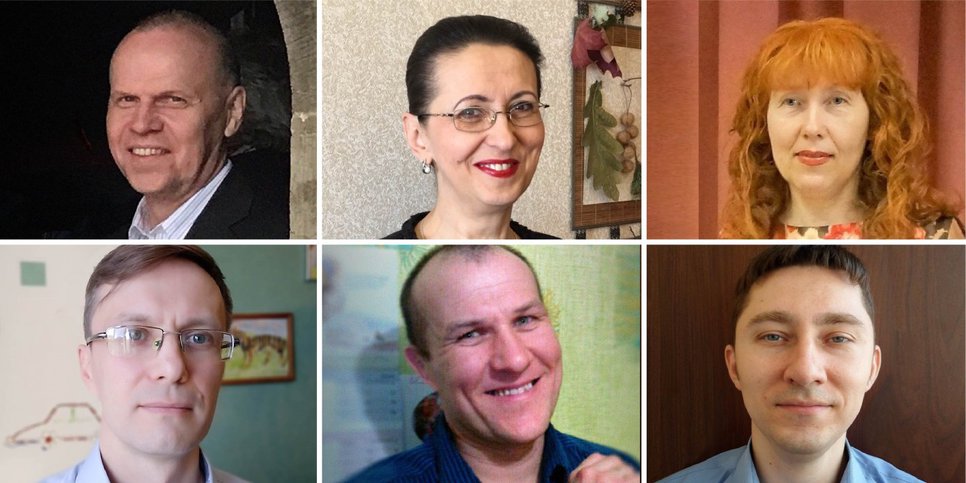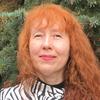In the photo from top to bottom from left to right: Vladimir Alushkin, Tatyana Alushkina, Galiya Olkhova, Denis Timoshin, Vladimir Kulyasov, Andrey Magliv
In the photo from top to bottom from left to right: Vladimir Alushkin, Tatyana Alushkina, Galiya Olkhova, Denis Timoshin, Vladimir Kulyasov, Andrey Magliv
Absolutely peaceful "extremists": the prosecutor will decide on the term of imprisonment for believers in Penza
Penza RegionAlready on December 3, 2019, in the Leninsky District Court of Penza, the prosecutor may demand the punishment that, in his opinion, six citizens deserve. Their "guilt" is faith in Jehovah God. The case of Jehovah's Witnesses in Penza is rife with falsifications and inconsistencies.
Update. On December 3, 2019, it became known that the previously planned debate was postponed, as the prosecutor wished to return to the judicial investigation stage. The study of material evidence continues.
All believers are accused of extremism, although these accusations are not confirmed by witnesses or international arbitrators. A crime is called a joint discussion of the Bible, singing songs with fellow believers, conversations with others about God. Investigators unreasonably consider these actions to be the organization of the activities of a religious organization banned in Russia, although the Supreme Court of Russia did not prohibit the faith of Jehovah's Witnesses itself.
Surveillance and raids
Even before the arrest, the special services monitored the Penza believers for several months, then in July 2018 they staged mass searches and detentions. After them, the three believers spent two days in the detention center. Vladimir Alushkin, whom the prosecutor's office considers the "leader" of local believers, was sent by the court to a pre-trial detention center, where he stayed for about six months and was then released under house arrest.
At the moment, six people are defendants in the case, including two women: Vladimir's wife Tatyana Alushkina and their friend Galiya Olkhova. Both women are under recognizance agreement. The men were left under house arrest by the courts.
Collateral casualties
While the prosecution is working on the installation of artificially criminalizing the faith of Jehovah's Witnesses, the families of law-abiding citizens are suffering.
One of the defendants in the case, Vladimir Kulyasov, working at the Penza Design and Technology Bureau of Valve Engineering, was recognized as an excellent student and the best driver of the year. Now he cannot take care of his two minor children and wife in the way he could do if he had a job - house arrest does not allow.
Entrepreneur Denis Timoshin is the only breadwinner in the family and the father of a minor child. His wife cannot work for health reasons, so the issue of house arrest places a heavy burden on the family.
Andrey Magliv's wife became the only breadwinner in the family. However, she is forced to spend a lot of time caring for an elderly mother who cannot take care of herself.
The UN Working Group is not a decree
The defense tried to appeal against the arrest and measure of restraint of the believers, demanding that the appellate instances declare them illegal. However, the judges of the Penza Regional Court refused to do this and repeatedly extended the terms of the preventive measure.
At the same time, the panel of judges ignores the opinion of the UN Working Group on Arbitrary Detention, according to which the activities, in particular, of Vladimir Alushkin (and since he is called the "leader", the rest of the arrested Jehovah's Witnesses) cannot be considered extremist.
"All the activities in which Alushkin took part are an absolutely peaceful religious discussion," the UN Working Group said in a document.
During the trial, several witnesses, including the main prosecution witness, did not confirm that the defendants' actions were in any way related to extremism.
From the interrogations of other witnesses given during the court hearings, it follows that the investigation falsified their preliminary testimony, and some openly exerted pressure.






